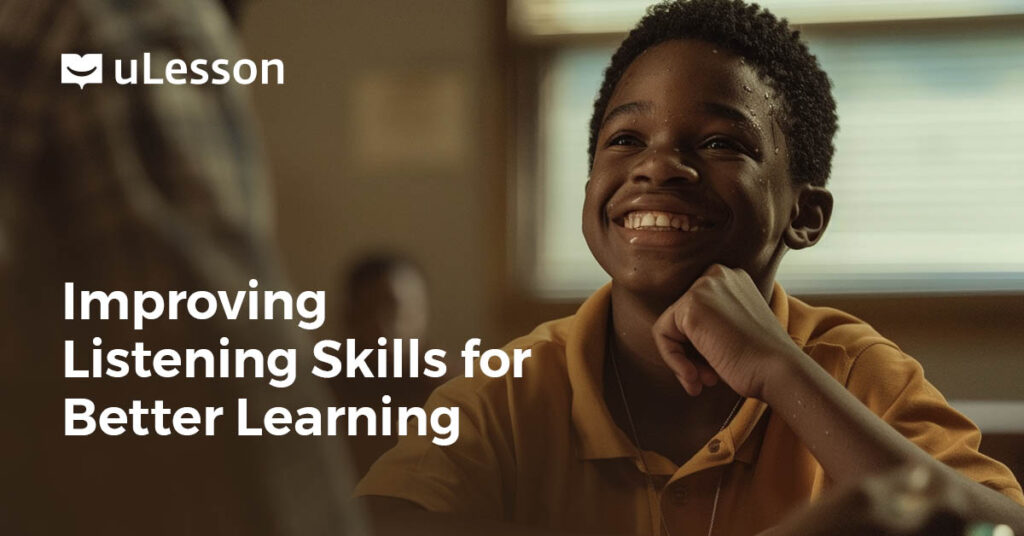Listening is a crucial part of learning. When we listen well, we understand better, remember more, and communicate more effectively. But when we don’t listen well, we miss out on important information and find it difficult to understand others. Here are some tips and techniques to help you become a better listener with your parents or guardians, peers, and teachers.
7 Tips for Improving Your Listening Skills
1. Pay Attention
Firstly, paying attention is key. This means focusing on the speaker without distractions. For instance, in class, avoid sidetalk, put away your device, and give your full attention to the teacher. At home, when your parents are speaking to you, listen without interruptions. When you actively listen, you will be able to catch important details and understand the subject of discussion better.

2. Show That You’re Listening
Secondly, showing that you’re listening can encourage the speaker. You can do this by nodding, making eye contact, and responding appropriately. For example, when a friend is talking, you can nod and say, “I see” or “That makes sense.” With teachers, you might respond by asking relevant questions. This shows you are engaged and interested.
3. Avoid Interrupting
Moreover, it is important not to interrupt. Let the speaker finish their thoughts before you respond. This shows respect and allows you to hear the complete message. If you have a question or comment, wait for a natural pause in the conversation. This applies when talking to parents, friends, or teachers.
4. Practise Active Listening
Active listening involves more than just hearing words; it requires understanding the message. To practise active listening, summarise what the speaker has said and repeat it back to them. For instance, if a teacher explains a math problem, you might say, “So, if I understand correctly, the first step is to multiply these two numbers?”

5. Ask Questions
Asking questions is a great way to improve your listening skills. Questions show that you are paying attention and help clarify anything you don’t understand. For example, if you’re listening to a history lesson and something isn’t clear, ask your teacher to explain it again. You can do the same with parents or friends if you need more information or clarification.
6. Take Notes
Taking notes can also enhance your listening abilities. When you write down key points, you are more likely to remember them later. This is especially helpful during lectures or when studying complex subjects. At home, you can jot down reminders from your parents or important points from discussions with friends, like birthdays or to-dos.
7. Practise Regularly
Finally, like any skill, listening improves with practice. Engage in activities that require good listening, such as following audio instructions, participating in discussions, or listening to educational podcasts. Practise these skills with everyone around you—parents, friends, and teachers.

By focusing on these strategies, you can significantly improve your listening skills. Better listening leads to better understanding, which is essential for academic success and effective communication. Remember, improving listening skills is a journey, but with consistent effort, you will see remarkable progress.
Also, the next time you’re watching video lessons on the uLesson app, ensure you flex your listening skills’ muscles! Take notes and avoid distractions. Download and subscribe to the uLesson app to practice effective listening while making your difficult subjects a piece of cake.
Improving listening skills will not only help you in school but also in everyday life. Start practising today and watch your learning and communication abilities grow!



